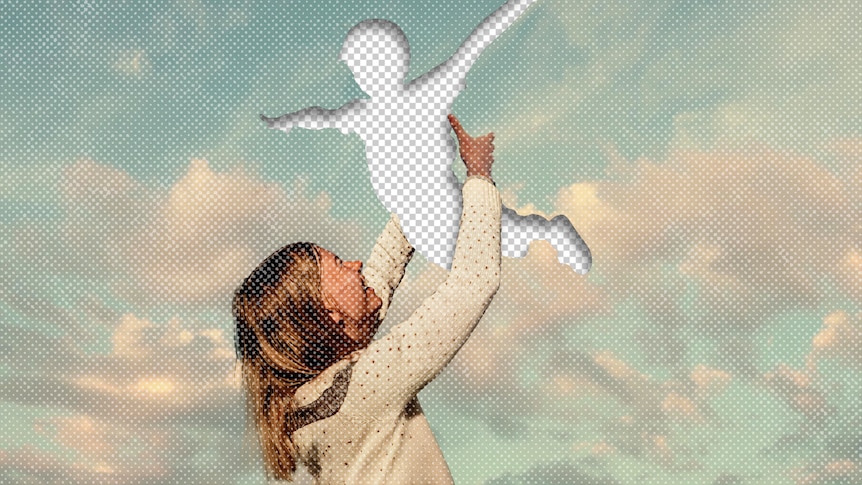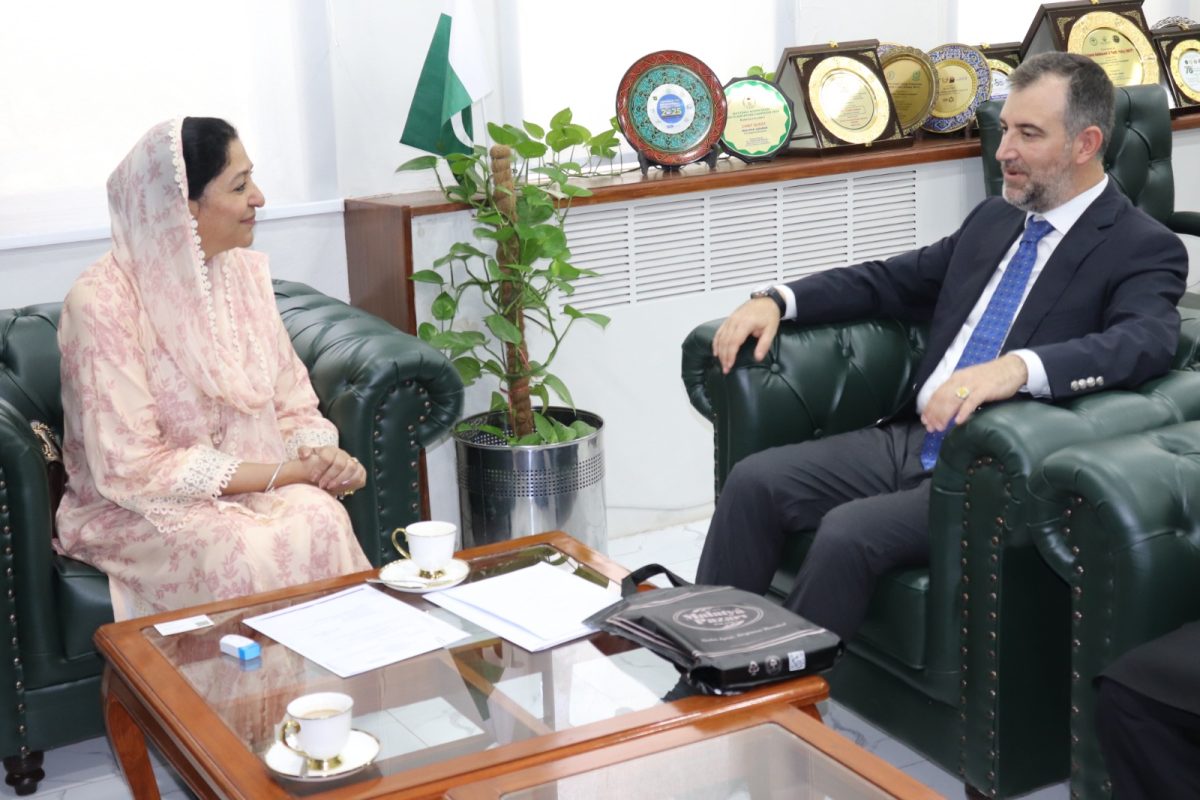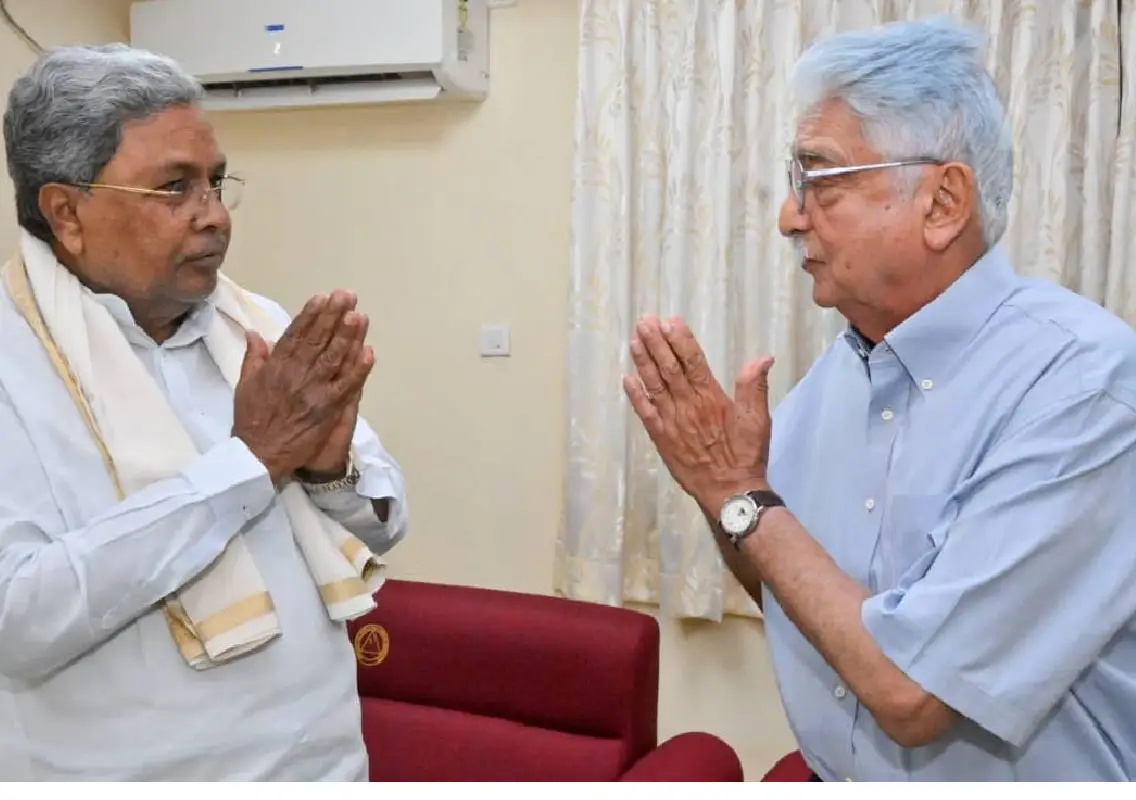By ABC News
Copyright abc

Elon Musk believes the collapsing birth rate is humanity’s biggest danger. But antinatalists argue having kids is little more than a procreational Ponzi scheme, and the risks are real. This is the case against babies.
Elon Musk has said the collapsing birth rate is civilisation’s biggest danger “by far”, and he has fathered 14 children in response (as far as we know).
Vladimir Putin recently reinstated the Stalin-era “Mother Heroine” award for women who have 10 children in less than 10 years.
And China has completely reversed its “one-child” policy and now implements an aggressive fertility agenda that involves claims of human rights violations.
Ideas and policies that seek to encourage baby-making are often referred to as “pronatalist”. But over the past 20 years there’s also been a parallel rise in an opposing viewpoint: antinatalism.
It is important that antinatalism is not conflated with the childfree movement and the rise in maternal ambivalence. Both of those are important, but they still (usually) focus on whether or not people want to have kids.
An antinatalist is asking something different: Regardless of what we want, should we?
A baby is an optional extra
In Australia, fertility rates peaked at 3.55 babies per woman in 1961 and have been declining steadily since. In 2023, the Total Fertility Rate globally was 2.25 babies per woman. And now in late-2025 it is possible we have already dipped below the global replacement level of 2.1 children per woman. In 2024 Australia hit an all-time low of 1.51.
It’s the same story in most rich countries: People have their first child later in life, have fewer children in total, and the number of those who never have any at all continues to rise.
Women in sub-Saharan Africa give birth to more babies than anywhere else, averaging between 4.8 and 5.1 babies each. But in countries like South Korea and Serbia fertility rates are below 1.1.
When fertility rates fall, most countries are unlikely to see the number rise again.
In their 2024 book, What Are Children For?: On Ambivalence and Choice, co-authors Anastasia Berg and Rachel Wiseman considered the title question from many angles, citing paper after paper, study after study, complicating the simple answers presented elsewhere. The conclusion I was left with after reading the book was that anyone claiming a decline in fertility rates has one predominant cause is either lying, or misunderstands the evidence.
I asked Berg about what I believe I’ve witnessed over the past five years: An explosion in the conversation about whether or not to have kids and why it feels different this time.
Berg believes “the role of children and family in human life has changed from a constitutive element of what it means to live a flourishing human life to an optional project”.
In other words, having children is just one of many things we might do with our lives. We used to lead, in Berg’s words, “essentially intergenerational” lives. But now we weigh things up as individuals: risks, rewards, advantages, and costs.
A generational, cultural shift is underway
As Australia faces a cost-of-living crisis, a lack of affordable housing is often raised as an important reason many people “cannot afford” children. But it is also undeniable that a generational cultural shift has occurred.
People now feel they must meet certain milestones of adulthood and stability before having children. The result is delayed first births, and fewer children overall.
Similarly, people in Australia point to the high cost of early childhood education and care, and a lack of equal parental leave policies — both of which certainly suck — but in various Nordic countries where these policies are generous and more gender-equal, the fertility rate remains low.
Berg points out that “financial concerns certainly loom large in people’s minds” when considering whether or not to have children. But she says when people look at historical trends they rarely point out the most decisive one: As material prosperity and the standard of living have increased birth rates have decreased across the board.
It’s not that people are being dishonest when they cite financial concerns. It’s just that it’s more complicated, and cultural, than that.
“Often underlying what presents as an anxiety about finances is a deeper concern about reaching a high and murky standard of maturity and accomplishment,” Berg says, citing achievement in a career or bank balance but also personally and romantically. These achievements become “a precondition to even so much as thinking about the question of children”.
Are you a ‘philanthrope’ or a ‘misanthrope’?
Antinatalism — like any “ism” — is an umbrella term for a range of beliefs and attitudes. Underneath the big antinatalism umbrella are two predominant approaches: the “philanthropic” and the “misanthropic”. Both hope to reduce suffering in the world.
The philanthropic antinatalist believes every human life involves suffering. From this belief they conclude it is therefore unethical to impose consciousness onto a new human who can’t consent to that inevitable suffering. The solution to this problem, according to the philanthropic antinatalist view, is if a person does not exist in the first place. Only then can they be guaranteed to never suffer.
Importantly, the philanthropic position is not about some overall weighing-up of happiness versus pain. The philanthropic antinatalist is not arguing that we can tally good days of joy versus bad days of suffering. And they are not arguing that people whose lives involve more suffering somehow have less valuable lives. Instead, they are saying that suffering, to some degree, is an inherent and immutable part of each of our lives.
Sure, a person who wants to become a parent may believe that the odds are in their favour and that their child will experience enough joy in life to overcome the suffering, but there’s no way to check with someone that they’d take that bet. You may personally feel that the good in your life outweighs the bad — and that’s wonderful — but it doesn’t make it true for others. Your experience also doesn’t negate the suffering others live with.
By contrast, the philanthropic antinatalist believes there is no harm done if someone simply never comes into existence in the first place.
Is facing our suffering really where the meaning of life is found?
Many philosophers and philosophies have delved into the nature of suffering. In Buddhism, the First Noble Truth is that suffering exists. The Buddha taught that suffering can be overcome by abandoning cravings and attachments. German philosopher Arthur Schopenhauer built on that in the early 1800s, believing that human needs, cravings, and urges brought about an inevitable and terrible suffering that could only be alleviated in certain engrossed states of temporary liberation. Danish existential philosopher Soren Kierkegaard and Germany’s Friedrich Nietzsche wrote about suffering usually catalysing life lessons and being the necessary pathway to personal development.
Nietzsche might have said “To live is to suffer, to survive is to find some meaning in the suffering.”
But a philanthropic antinatalist’s inquiries happen a step earlier: why force someone into that suffering at all, they ask?
By contrast, the misanthropic antinatalist is concerned with the suffering humans cause to each other, to animals, and to the planet. It is absolutely true to say that life is precious. But the misanthropic antinatalist argues that it is not only human life that is precious, and human beings, amongst all other animals on the planet, have uniquely devastating impacts.
As you can probably intuit, misanthropes are not usually fun to spend time with.
If you want to grab a burger they might remind you of the extremely confronting Australian animal kill clock that counts down the numbers of animals killed for food each year. If you want to go shopping, they may point out that each one of us now has about five bottle caps worth of microplastics in our brains. And if you try to suggest that most people are, at the end of the day, fundamentally good, they might counter that with the fact that the average Australian is wealthy enough to be in the global 1 per cent and yet The World Bank recently announced the world has almost certainly lost its goal of ending extreme poverty by 2030.
On the Antinatalist Advocacy website they promote the divergence of opinions within their community.
“Speaking of not agreeing… There is a lot of intellectual diversity within our small but growing community. We’ve got antinatalists who are opposed to human extinction — at least for the time being — and we’ve got antinatalists who believe that extinction should be the primary (and obvious) end goal. We’ve got VHEMT (Voluntary Human Extinction Movement) supporters who think nature should be allowed to flourish, and those concerned with wild animal suffering who believe the exact opposite.”
As I said — it’s a big umbrella.
The most famous living antinatalist is David Benatar. He is an emeritus professor in the philosophy department at the University of Cape Town, South Africa, and his first major work on antinatalism, Better Never to Have Been, was published almost 20 years ago.
Since then, he tells me, antinatalism has “certainly been gaining increased attention”. Where Benatar’s book was the first to break through to a non-academic audience, the topic is now regularly debated in the media and a string of publications have been published on the subject.
Kids and the climate change link
As I was reading about the different branches of antinatalism, it struck me that the climate emergency represents a convergence of the philanthropic and misanthropic camps. There is guaranteed to be more human suffering as the planet continues to heat. And with the evidence we now have about human impact on the planet, it’s hard to care about how the climate is changing and not veer into misanthropy.
Earth’s 10 hottest years on record are the last 10. As Benatar told me, “There is now an active antinatalist movement, which has also been boosted by the environmental crisis.”
In 2021 protesters set fire to a pram outside Parliament House to object to then-prime minister Scott Morrison’s inaction on climate change. The United Nations’ Intergovernmental Panel on Climate Change had just released a report saying that it was a “code red for humanity”.
That report was prepared by 234 scientists from 66 different countries and highlighted that human influence had “warmed the climate at a rate that is unprecedented in at least the last 2,000 years”. Those scientists pointed to stronger-than-ever evidence that human influence is responsible for changes in extremes such as heatwaves, heavy precipitation, droughts, and tropical cyclones.
That’s a lot of suffering.
That was the same year market research firm IPSOS published its Perils of Perception report into climate change, which looked at how people understood the environmental ramifications of their actions. (A 2024 report focusing on facts vs fiction has since been released.)
The 2021 report found that when asked to nominate what three actions were most likely to reduce the greenhouse gas emissions of an individual living in a wealthy country, most chose recycling as much as possible (59 per cent), renewable energy (49 per cent) and using an electric or hybrid vehicle (41 per cent).
The problem was that while all of those are good things to do, the report claimed “none are in fact in the top three most effective measures”.
So what were the top three?
The most effective way to reduce carbon emissions was to have one fewer child, followed by not having a car at all. And thirdly, avoiding one long distance flight.
Only 11 per cent of 21,011 adults who took part in the study correctly picked “having one fewer child” as the best thing they could do to reduce emissions.
On the other hand, while ecologists first raised the concept of an “ecological footprint” in the early 1990s, the idea of an “individual carbon footprint” was cooked up by oil giant BP in an American ad campaign in 2004 that was designed to place blame for the environmental impact on consumers, not corporations.
When I booked a flight, Qantas charged me around $20 to “offset” the footprint of my seat, even though the company made $21.9 billion in revenue last financial year.
A lack of regulation allows corporations and shareholders to keep giant financial profits and “externalise” the cost of their impact on the planet.
A new kind of mother guilt
Many people are annoyed by the idea that their most personal decision — whether or not to become a parent — is influenced by guilt for a scale of harm-for-profit no individual human brain can conceptualise. Fair enough.
The difficulty with that argument is the ongoing lack of accountability. Millennials blame boomers for the heat of the planet they inherited, but millennials have been adults for about two decades now, and have proven they’re either unwilling or unable to make the fundamental changes to personal or corporate accountability required to make a real difference.
In fact, Australian Zoomers like climate activist Anjali Sharma are begging their elders to acknowledge that the government owes them a duty of care not to exacerbate the climate emergency. Sharma and a team of advocates worked with independent senator David Pocock to propose a duty of care amendment to the Climate Change Act in 2023. It would have applied to projects releasing more than 100,000 tonnes of carbon emissions over their lifetime. The proposal was rejected by a Senate inquiry. In 2021 Sharma and seven other teenagers tried to sue the government, arguing it had a legal duty not to cause harm to young people by exacerbating climate change when approving coal mining projects. The government fought them and won.
In the face of a lack of policy action young people are taking control in other ways.
Is it any wonder that young people are increasingly citing “climate concerns” as a reason not to have children of their own?
In 2021 The Lancet published the results of a global survey asking 10,000 children and young people from 10 countries, aged 16-to-25, about their thoughts and feelings on the subject. And 39 per cent said uncertainty around climate policy made them hesitant to have children. They reported a great sense of “betrayal and abandonment by governments and adults”.
A reply I see often in the comments section on antinatalism articles is that older generations had similar anxieties around nuclear war. Was it the right thing to do, to create new life, under that looming threat?
There are a few key differences, though.
A missile is either a) deployed, or b) not deployed. And that choice is made by a small number of people. Aside from protesting, there’s not much a single citizen could have done then, or now, to prevent nuclear war.
By contrast, the climate emergency is already here. It’s happening. It seems to keep getting worse, and we’re all implicated.
‘I want to stop you becoming parents’
When David Benatar, the antinatalist, visited Sydney last year for the Festival of Dangerous Ideas he opened his presentation having to correct a somewhat misleading headline written about him in the Sydney Morning Herald. The article opened with the sentence “David Benatar wants to stop you from becoming a parent”.
As he clarified to the chuckling audience of men and women, he did not want to stop anyone from doing anything. He did not want to control anyone. He wanted to convince. He said “I don’t want to stop you from becoming a parent, I want you to stop becoming parents.”
This type of “mythbusting” is familiar to many antinatalists.
People who have never encountered antinatalist ideas often conflate them with things like eugenics and eco-fascism.
But as Benatar told me, eugenics seeks to “improve” the human species (according to often racist criteria), sometimes through selective breeding. Eco-fascists, on the other hand, seek to exert control over others to advance environmental goals.
Antinatalism is neither.
Benatar told me his published works explicitly argue in favour of reproductive freedom, even though he believes procreation to be morally wrong.
“That is about as far from fascism as you can get,” he argues.
No contemporary antinatalist I’ve ever read or spoken to wants to see their beliefs imposed on others through public policy. By contrast, many governments trial various types of “pronatalist” policies. There are economic arguments for having children, and as any treasurer will tell you, the threat of an ageing population looms. But these still prioritise the interests of the already living.
Benatar describes it as a “procreational Ponzi scheme”. He says new people are just created to protect existing people.
“As with all Ponzi schemes, this one will eventually go bust, because the human species will eventually come to an end. One is only delaying the problem, not preventing it by employing pronatalist policies,” he believes.
An ecosystem that causes harm
In responding to the misanthropic antinatalist argument, What Are Children For? author Anastasia Berg acknowledges “it’s impossible to overlook the extremity and frequency of human moral failure — our callousness and cruelty,” but that outweighing that is her belief that “we are, at every moment, free to choose to do the right thing. And I think each of us who have faced the possibility of doing the right thing — which is to say, all of us — know that to be the case.”
What keeps me up at night, though, is that the cobalt in my smartphone was probably mined by children in “slave-like conditions” in the Democratic Republic of Congo. And even if I do what the IPSOS report tells me and never own a car, as an Australian thousands of my individual tax dollars each year go to fossil fuel subsidies. Even if I don’t proactively choose to do “bad things”, being alive in a globalised world means I’m a part of an ecosystem that causes harm.
As the antinatalist argument goes, there are plenty of people alive right now who need care and resources.
The Antinatalist Advocacy website, co-founded by Australian antinatalists Lawrence Anton and John Williams, offers Five Steps to Doing Good that include reducing harm to animals and the planet by going vegan, and choosing an altruistic profession. The site compares the maths of the cost of raising one child to the same money saving at least 50 lives through donations to effective malarial treatment charities.
On the climate emergency point, at least, Berg points to the book After the Spike by Dean Spears and Mike Geruso, two leading economists from the University of Texas at Austin. Spears and Geruso ran the numbers and point out that, while it’s true that if the human population halved itself tomorrow there would be fewer emissions, fertility effects on population size are far too slow to make a dent in carbon emissions in time for it to make a real difference.
“This helps us see a very clear way out of the predicament you outline, at least when it comes to our reproductive choices,” Berg says. “Only climate action will have the necessary effect on emissions and warming, and therefore that’s what must be our priority.”
Berg and her co-author cited a Pew Research Centre study from 2021 that appears to challenge the idea that young people are really making reproductive choices based on the climate emergency. The study, which surveyed 3866 Americans aged 18-to-49, found 44 per cent of those without children believed it was “not too likely” or “not at all likely” that they would eventually have children. The figure was up from 37 per cent in 2018.
Yet only 5 per cent of the 2021 respondents cited climate change and the environment as a reason for not wanting children. The top concern was “medical reasons” followed by “financial reasons” and “no partner”.
Berg and her co-author used these results to argue that although concerns for the planet dominate the public conversation, they aren’t really impacting people’s individual reproductive choices. Women in particular are punished for expressing ambivalence towards babies and parenting. However a young person can cite the climate emergency, as both a genuine concern and a bit of a smokescreen for a broader sense of ambivalence about their futures.
That American data runs counter to a 2019 Australian study conducted by the Australian Conservation Foundation (ACF) that surveyed more than 6,500 women of which one third of those under 30 said they were reconsidering having children or reconsidering more children “because I am increasingly worried that if I have children they will face an unsafe future from climate change”.
The respondents to the Australian survey were emailed by the ACF so there is likely some self-selection bias in the results, but one third is still a significant percentage.
This is what I mean when I talk about the climate emergency representing a combination of the philanthropic and misanthropic camps of antinatalism: young people are worried their potential future children will suffer, and they don’t have a lot of faith that humanity can turn this warming ship around.
Where is the love?
One thing I noted after attending Benatar’s speech in Sydney was that he didn’t once refer to love. In conversations I have had with others about whether or not they think they could, or should, be parents, almost all of them refer in some way to love.
I asked Benatar how his philosophy accounts for love?
“It makes eminent sense to love a child who already exists, but no sense at all to think that procreation itself is an act of love towards the child,” he replied.
He argues that those who do not exist have no interest in existing.
“One does them no favours in creating them. Once they do exist, however, they then require love,” he says. “I don’t deny that creating children can be good for those who thereby become parents. However, that does not change the fact that creating children is bad for the child who is created, because they can and will suffer and then die. I cannot see how that can be morally justified by the benefits this child’s existence brings to the parents.”
One of the most important things a good thinker can do is question their own presumptions. And when it comes to this ultimate question Benatar raises a critical point: Is your decision fundamentally self-interested?
It’s true that many people, once alive, are glad to have been born despite their lives being a mixture of joy and pain. But that is not the case for everyone. If you do decide to create another person you are making a huge unilateral decision, with the risk that the subsequent life won’t feel the same way you do. Should you check in first with the person you’re about to create? You can’t.
Berg, on the other hand, doesn’t find this kind of argument particularly convincing.
“What we are responsible for as parents is not the sum of our children’s wellbeing but preparing our children to meet’s life’s challenges, disappointments, and temptations as best we can,” she says.
Both Berg and her co-author are now parents themselves. Benatar is not.
It’s a question that I keep returning to as I find more websites and books considering pronatalist and antinatalist arguments: are these people just deciding what they want, then mounting an intellectually moral position to defend their desires?
Surely that would be the most cynical conclusion of all: that we are mere animals beyond the reach of persuasion or philosophy.
Bri Lee’s novel Seed will be released on September 30.
Words: Bri Lee
Production: Catherine Taylor
Illustrations: Lindsay Dunbar



